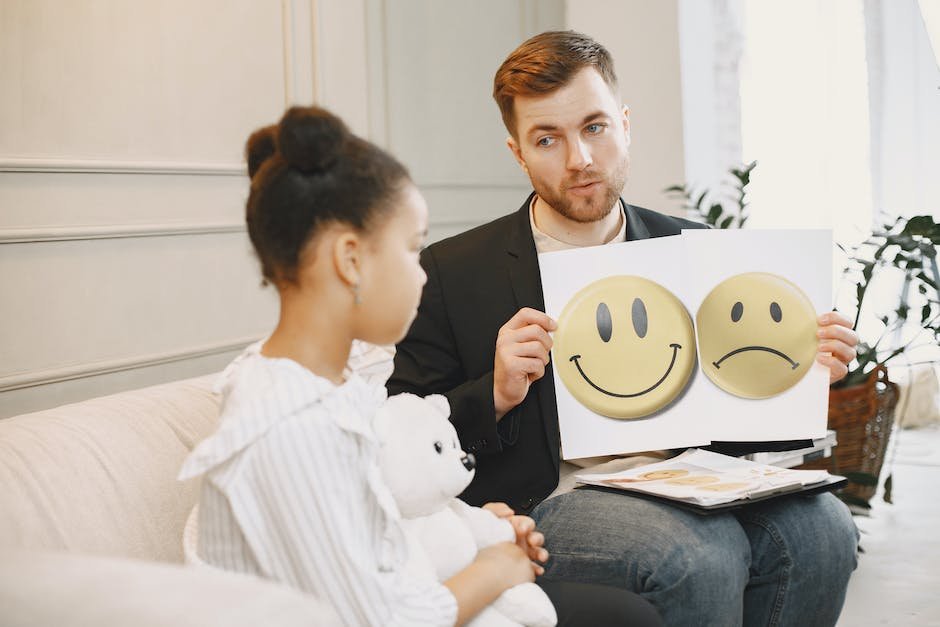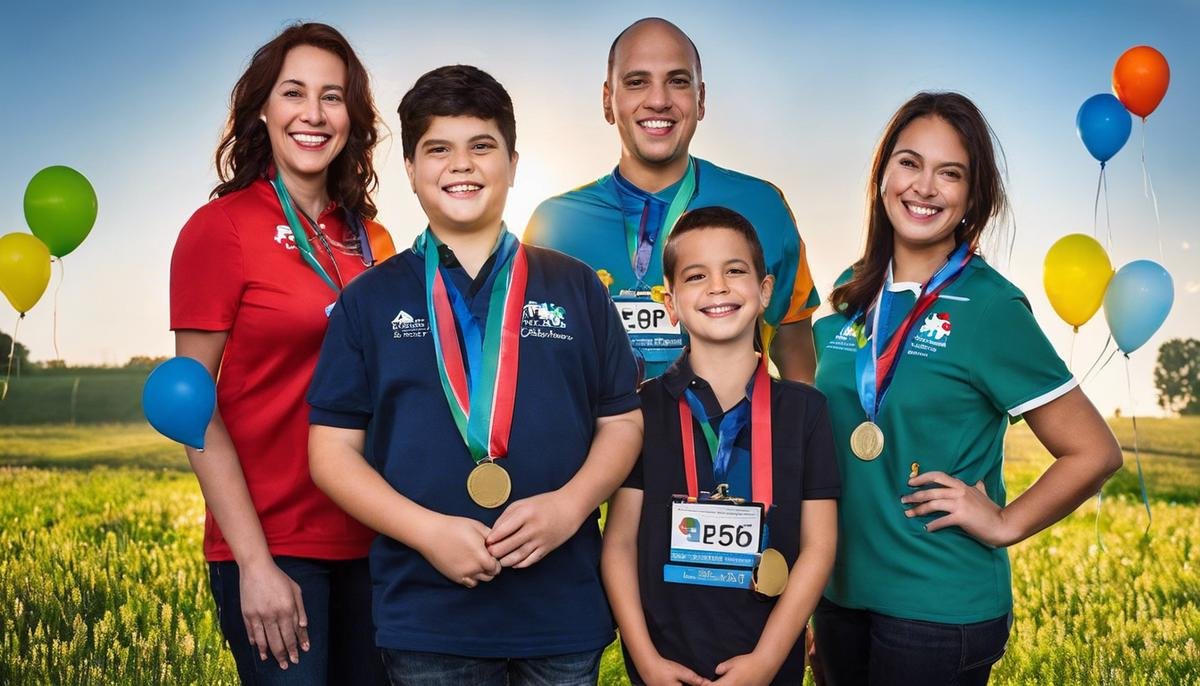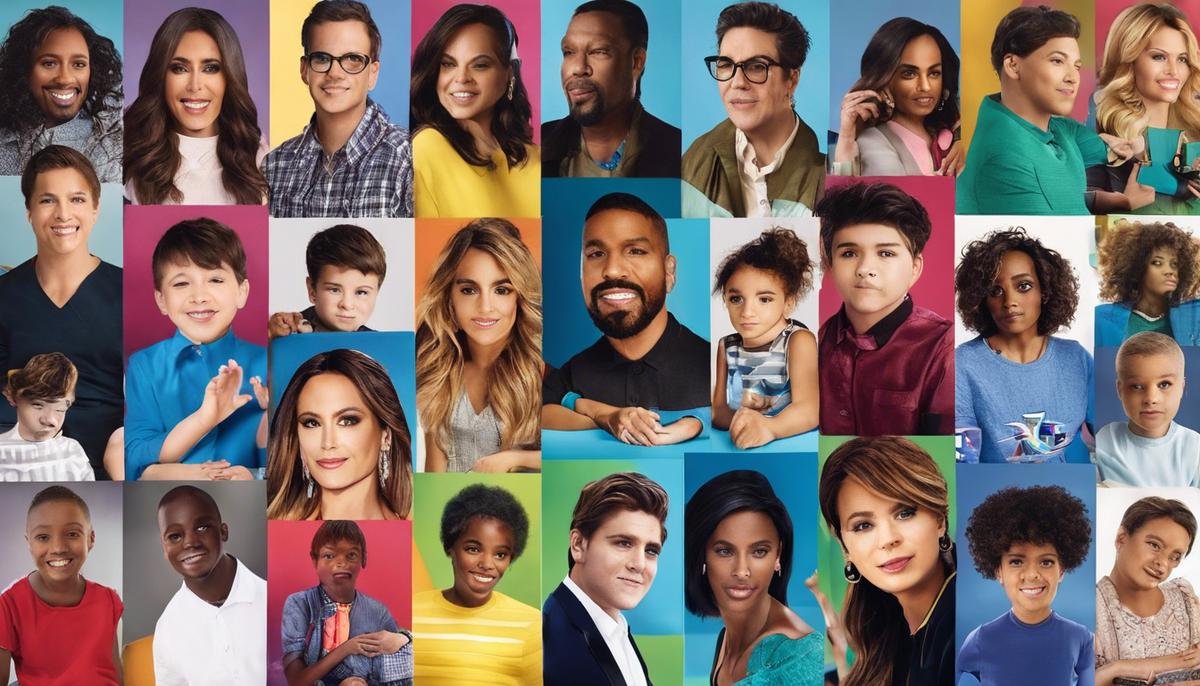
In the span of this discussion, our attention will be drawn towards Autism Spectrum Disorder (ASD), a developmental disorder that affects many children globally, yet still carries a substantial amount of misunderstanding and stigma. We will tackle the essentials of ASD, such as its signs, symptoms, diagnostic criteria, and most significantly, its profound impact on children and their families. A vital element of this dialogue is understanding the power of early diagnosis and intervention in altering the lives of affected children significantly.
We will then shift our focus towards high-profile personalities who have taken up the mantle of autism advocacy. Including renowned celebrities, eminent athletes, and influential individuals, their personal reasons for advocacy, their campaigns, and the influence they yield in raising awareness will all form a part of our discussion. It is through their inspiring efforts that we can gain a deeper appreciation of the extraordinary impact made, not just within the autism community, but in society as a whole.
Understanding Autism Spectrum Disorder (ASD)
Understanding Autism Spectrum Disorder and its Impact on a Child’s Life
Autism Spectrum Disorder (ASD), previously known as simply “Autism”, is a broad term used to describe a group of neurodevelopmental disorders. It is often characterized by differences in social interaction, communication abilities, attention span, and even behaviors. ASD is a complex and multifaceted condition that doesn’t affect two individuals in exactly the same way. The term “spectrum” just as a rainbow has different colors, children with ASD have a variety in the degree and types of symptoms they exhibit.
In general, children with ASD may start showing signs as early as infancy. These could include avoiding eye contact, having delayed speech or no speech at all, showing little interest in relationships with peers or even parents, or presenting with repetitive behaviors. ASD’s impacts can range from mild to severe, but it’s essential to remember that each child with ASD is unique.
A delay in social skills development often affects children with ASD. They may find it challenging to decipher facial expressions, body language, or tone of voice. It could be hard for them to initiate and maintain conversations, making it difficult to form relationships with their peers. These social challenges could consequently impact their emotional well-being, resulting in feelings of isolation or depression.
Communication issues can be another effect of ASD. Language development tends to occur later and differently than neurotypical children. A child with ASD might struggle with expressing their emotions and thoughts, leading to frustration for both the child and those around them.
Another area of impact is in sensory perceptions. Children with ASD frequently experience hypersensitivity or hyposensitivity towards sight, sound, touch, taste, and smell. This could mean that certain noises or textures, which may seem insignificant to neurotypical individuals, could cause immense discomfort or stress to a child with ASD.
Managing routine changes can also pose a particular challenge for children with ASD. They often thrive on routines and predictability, and even small changes can cause significant distress. This can make managing day-to-day activities, school, or unexpected changes a bit of an uphill task.
However, being diagnosed with ASD is not a sentence to a life of struggle. It’s important for families to remember that there is a broad range of resources available to assist them. Special education services, behavioral therapy, speech therapy, and occupational therapy are just a few of the many interventions that can have positive effects on a child with ASD.
In conclusion, Autism Spectrum Disorder might present unique challenges to impacted children and their families. However, armed with love, patience, understanding, and the right resources, these wonderful individuals can learn, grow, and thrive. The key is to remember that every child with ASD is unique – they’re not defined by their condition, but rather, they are individuals who just so happen to be on a spectrum that makes them distinctively remarkable.

Famous Personalities Advocating for Autism
Today, let’s dive into the world of some truly inspiring advocates, those beloved personalities championing the cause for autism in 2023. Their actions not only foster understanding and inclusivity but also play an instrumental role in breaking down societal barriers often associated with Autism Spectrum Disorder (ASD). So, let’s meet these stars carving a path of acceptance and hope for those affected by ASD and their families.
Kicking off the list is none other than Skylar Astin, the dynamic actor gifted with a golden voice. Known for his roles in “Pitch Perfect”, and more recently “Zoe’s Extraordinary Playlist”, Astin actively advocates for autism awareness. Skylar’s personal experience with ASD, as his cousin was diagnosed with it, makes him a passionate and heartwarming advocate.
Following closely is Maddie Ziegler, a celebrated dancer and actress who stole the show in Sia’s music video “Chandelier”. Having played an autistic character in “Music”, Ziegler uses her platform to promote increased understanding around autism and fights against unfounded stigmas.
Next up, award-winning actress and advocate, Holly Robinson Peete. As a mother of four, one of whom has ASD, Peete co-founded the HollyRod Foundation to provide support and resources for families affected by ASD. Today, she remains an unswerving voice for autism awareness and acceptance.
David Byrne, legendary musician of Talking Heads fame, is widely praised for his outreach on neurodiversities. Known for his unique approach to music and eccentric on-stage presence. As someone on the spectrum, Byrne proves that those living with ASD are as capable of achieving remarkable success as anyone else, if not more!
Finally, the noteworthy advocacy of Dr. Temple Grandin, professor of animal science and one of TIME magazine’s “100 Most Influential People”, deserves admiration. Diagnosed with autism at a time when little was understood about the disorder, Dr. Grandin has written multiple books educating the public about living with ASD and has received numerous awards for her influential work in the field.
These household names have worked tirelessly to be the voice for those often left unheard. By leveraging their influence and raising awareness about ASD’s realities, these personalities are helping to shape a society where everyone, regardless of their neurological make-up, feels seen, heard, and valued.

Impact of Celebrity Advocacy on Public Perception of Autism
The Butterfly Effect of Celebrity Advocacy on Autism Awareness
Stepping onto the grand stage of public consciousness, celebrities often garner a unique power to shed light on issues that otherwise may be left outside the spotlight. When a well-known personality lends their voice to a cause, it tends to reverberate far and wide, shaping perceptions and raising awareness. One cause that has seen a significant shift in public understanding over recent years is Autism Spectrum Disorder (ASD), thanks in large part to the powerful advocacy of numerous celebrities.
Actor Skylar Astin, known for his role in “Pitch Perfect”, is not just playing a part in movies or TV shows. He’s using his platform to give back and raise awareness about ASD, supporting various walk events, and regularly speaking about autism in interviews and on social media. His activism presents a refreshing example of how popular culture can go beyond the façade of entertainment, to educate and inspire. Astin’s dedication to the cause contributes to shifting the public perception surrounding ASD.
Meanwhile, dancer and actress Maddie Ziegler, made a powerful statement about ASD when she played an autistic girl in the movie “Music”. Despite stepping into unfamiliar territory, Ziegler was determined to give a sincere depiction of living with this condition. Her portrayal has stirred a broader dialogue about the nuances of ASD and the need for more inclusive representation in the media.
No stranger to the world of ASD is Holly Robinson Peete, mother to an autistic child and founder of the HollyRod Foundation, which provides invaluable support to families affected by autism. Peete’s relentless advocacy brings to the forefront the reality of raising children with ASD, highlighting how early intervention, strategic therapies, and boundless love can positively impact their lives. Her efforts have undeniably played a pivotal role in directing public attention toward the challenges faced by these families.
David Byrne, renowned frontman of the band Talking Heads and an individual on the autism spectrum, has consistently leveraged his fame to spread awareness about neurodiversities, including ASD. His candid accounts of living with ASD shatter misconceptions and provide insight into the unique abilities and talents of those on the spectrum.
Last but certainly not least is the indomitable Dr. Temple Grandin, an animal behaviorist, and autism advocate. Diagnosed with autism as a child, Grandin has revolutionized the understanding of this disorder, encouraging the idea that those with ASD are not broken but simply different. Her tireless efforts and notable achievements prove that autism isn’t a barrier, but rather a different lens through which to view the world.
In conclusion, the advocacy of these celebrities and many others is helping normalize ASD, breaking down stigmas and ultimately establishing an enlightened narrative about the condition. Their collective influence merges with the work of countless therapists, teachers, parents, and kind individuals worldwide, creating a much-needed ripple effect for better understanding of ASD. A warm reminder for all of us that shifts in public perception begin with a single, powerful voice – and each voice matters in the symphony of autism awareness.

Involvement of Celebrities in Autism Related Charities and Events
In a world where every move celebrities make is keenly followed by millions, their influence can undeniably shape societal perspective and awareness. This impact stretches to various social issues, including Autism Spectrum Disorder (ASD). As many celebrities have stepped up to raise awareness about ASD, their roles and contributions in this field deserve acknowledgement and appreciation.
Let’s now dive into the heart of their actions, starting with Dan Aykroyd. Known for his comedic prowess in “Ghostbusters” and “Saturday Night Live,” Aykroyd was diagnosed with ASD in his late childhood. Today, he is a living testament that autism is not a boundary to success. He shares his experiences with ASD through various platforms, making him a prominent figure in autism advocacy.
In the music industry, global pop icon Justin Timberlake supports ASD awareness by performing at charity concerts. Timberlake partnered with actress Jessica Biel in 2013 to host a concert that raised over $3 million for the autism charity, New Horizons. His active participation not only raises funds but also sparks conversations on ASD and the constant need for community support.
Then there’s the glamorous world of fashion, where top model Jac Jagaciak extends her influence beyond the runway to autism-related causes. Jagaciak is actively involved in Autism Speaks, an organization that propagates awareness on ASD while advocating on behalf of affected families. Her involvement helps shed light on the experiences of individuals living with ASD and their need for well-tailored support and understanding.
The dynamic duo, Toni Braxton and her son Diezel, also plays a significant role in in the field of ASD advocacy. After her son Diezel was diagnosed with autism, Braxton partnered with Autism Speaks and currently serves as one of their International Spokespersons. Additionally, Diezel, thriving in his modeling career, uses his platform to show that autism does not define a person’s capabilities.
Comedian-actor D.L. Hughley, whose son was diagnosed with Asperger’s syndrome, has touched hearts with his humorous yet heartfelt take on living with ASD. His book, “I Want You to Shut the F#ck Up,” is a compilation of his personal insights, which strike a chord with the ASD community, offering comfort that they are not alone.
In the realm of sports, professional basketball player Derrick Rose makes significant free throws for autism. Rose has helped raise awareness for ASD through his participation in autism-related events and generous donations.
These celebrities, among others, are providing incredible support to autism-related charities and events. In their unique ways, they are helping to alter public perceptions, stimulate conversations, and dismantle stereotypes about ASD. They prove that a diagnosis of Autism Spectrum Disorder is not a lifestyle limit but another way life can be beautifully and boldly lived. Little by little, these celebrities are fostering a world that is more understanding, inclusive, and supportive of individuals living with ASD.

As we move forward in advocating for autism and eradicating the misconceptions that surround it, the roles played by individuals of influence cannot be undermined. Their involvement in autism-related charities, events, and advocacy efforts shape our collective understanding of ASD. Their initiatives, whether in the form of fundraising or direct involvement with affiliated organizations, continue to impact the autism community positively and progress the conversation.
Engaging these figures to appeal to a broader audience will play a key role in propelling the cause even further, fostering both awareness and acceptance. Through this discourse, we have not only explored the cadre of influential figures championing autism but also highlighted the potential ripple effect it can have in societal perspective shifts, policy amendments, and research advancements. In all these endeavors lie the promise of a better tomorrow for those with autism and their families.





